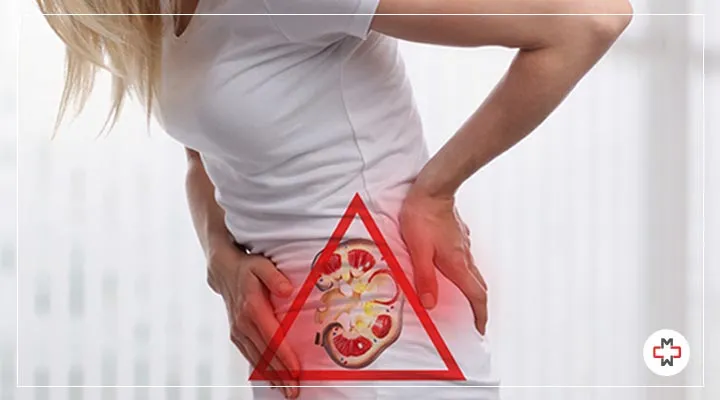Understanding the Distinctions In Between Kidney Stones vs UTI: Trick Symptoms and Treatments
Understanding the Distinctions In Between Kidney Stones vs UTI: Trick Symptoms and Treatments
Blog Article
Discovering the Effects and Causes of Kidney Stones in Contrast to Urinary Tract Infections: An In-depth Guide
The expedition of kidney rocks and urinary system infections (UTIs) discloses a complex interplay of symptoms and underlying reasons that warrant careful assessment. What are the vital distinctions in their signs, and how might these educate therapy techniques?
Introduction of Kidney Stones
Kidney rocks, likewise called renal calculi, type when particular compounds in the pee crystallize and accumulation, leading to the advancement of tough deposits within the kidneys. These stones can differ in size, varying from a grain of sand to a golf ball, and can be made up of numerous products, one of the most typical being calcium oxalate, uric acid, struvite, and cystine. The formation of kidney rocks is influenced by several variables, consisting of nutritional habits, fluid intake, and hereditary tendency.
Signs of kidney stones might include extreme discomfort in the back or side, blood in the pee, nausea, and regular peeing, particularly as the stone relocates through the urinary system. Diagnosis typically includes imaging research studies such as ultrasound or CT scans, alongside urinalysis to determine the rock's composition.
Therapy choices vary based upon the dimension and kind of rock, along with the extent of signs and symptoms (Kidney Stones vs UTI). Little stones might pass normally with enhanced fluid consumption, while bigger rocks might require medical treatments such as lithotripsy or surgical elimination. Understanding the pathophysiology and risk aspects connected with kidney rocks is essential for reliable prevention and management
Overview of Urinary System Infections
Urinary system system infections (UTIs) are common microbial infections that impact any component of the urinary system, including the kidneys, ureters, bladder, and urethra. They predominantly take place when germs, frequently from the gastrointestinal system, get in the urinary system, leading to swelling and infection.
The occurrence of UTIs is notably higher in women than males, mainly due to anatomical differences, such as a shorter urethra. Risk factors consist of sex, specific contraceptive methods, urinary retention, and dehydration. The diagnosis of UTIs is normally validated with urine examinations, which may disclose the presence of microorganisms, leukocyte, or red blood cells.

Signs And Symptoms of Kidney Stones
The discomfort connected with kidney rocks can materialize in various methods, commonly leading people to seek medical focus. Among the most common symptoms is serious discomfort, typically localized in the lower back or side, which might emit to the abdominal area or groin. This pain, often described as sharp or cramping, can take place suddenly and may vary in strength.
Furthermore, individuals may experience hematuria, or blood in the pee, which can vary from microscopic amounts to noticeable staining. This symptom might be accompanied by adjustments in urinary system habits, such as increased regularity or urgency, in addition to pain throughout urination. Nausea and throwing up are likewise prevalent, frequently resulting from the body's response to extreme discomfort.
In some cases, people might experience fever and cools, specifically if an additional infection establishes due to the obstruction triggered by the stones. Generally, the combination of serious discomfort, hematuria, transformed urinary patterns, and intestinal signs can supply significant understanding right into the existence of kidney rocks, calling for punctual medical assessment and intervention. Recognizing these symptoms is crucial for timely medical diagnosis and reliable administration of the condition.
Signs And Symptoms of Urinary System System Infections
Infections within the urinary system tract usually provide a variety of distinctive symptoms that can significantly impact life. The most usual signs include a consistent desire to pee, often gone along with by a burning feeling throughout urination, recognized as dysuria. Individuals might also experience increased frequency of peeing, producing small amounts of pee each time.
Other significant symptoms include over cast or smelly urine, which may suggest the visibility of microorganisms or pus. In many cases, urine might show up red or pink as a result of the existence of blood, a condition called hematuria. Furthermore, people may experience pelvic pain or stress, which can further worsen the sensation of necessity.
Systemic signs might also materialize, such as fever, chills, and exhaustion, especially if the infection has ascended to the kidneys. It is vital to recognize these symptoms early, as unattended urinary system system infections can lead to more extreme problems. Kidney Stones vs UTI. Prompt clinical attention is advised when these symptoms are observed, enabling for proper analysis assessment and therapy to minimize pain and avoid further health and wellness issues
Causes of Each Problem
Regularly, kidney stones and urinary system system infections develop from unique yet in some cases overlapping causes that can influence individuals in a different way. Kidney stones usually form due to metabolic factors, dietary choices, and genetic predispositions. Boosted levels of calcium, oxalate, or uric acid in the pee can bring about rock development. Dehydration, inadequate liquid consumption, and high-sodium diet regimens can click to find out more worsen these conditions, promoting crystallization within the urinary system tract.

Recognizing these distinctive causes is crucial for avoidance and therapy. Kidney Stones vs UTI. While way of life modifications might mitigate the risk of kidney stones, proper hygiene and timely therapy of urinary system tract infections are important for decreasing their reappearance and linked difficulties
Final Thought
In summary, kidney rocks and urinary system tract infections present distinctive signs and symptoms and underlying reasons. Kidney stones are characterized by severe pain and metabolic variables, while urinary system infections mostly entail bacterial infections resulting in urinary necessity and discomfort. Although both conditions can cause hematuria, their formation systems differ substantially. Recognizing these distinctions is essential for effective diagnosis and treatment, eventually enhancing person end results for those impacted by either problem.
The exploration of kidney rocks and urinary system tract infections (UTIs) go to this site reveals an intricate interplay of signs and symptoms and underlying causes that require mindful exam.Urinary system infections (UTIs) are typical bacterial infections that impact any type of component of the urinary system, consisting of the kidneys, ureters, bladder, and urethra.Regularly, kidney rocks and urinary system tract infections emerge from distinctive yet often overlapping causes that can impact people in a different way.In recap, imp source kidney rocks and urinary system system infections existing unique symptoms and underlying reasons. Kidney stones are identified by severe pain and metabolic variables, while urinary tract infections primarily involve bacterial infections leading to urinary seriousness and discomfort.
Report this page